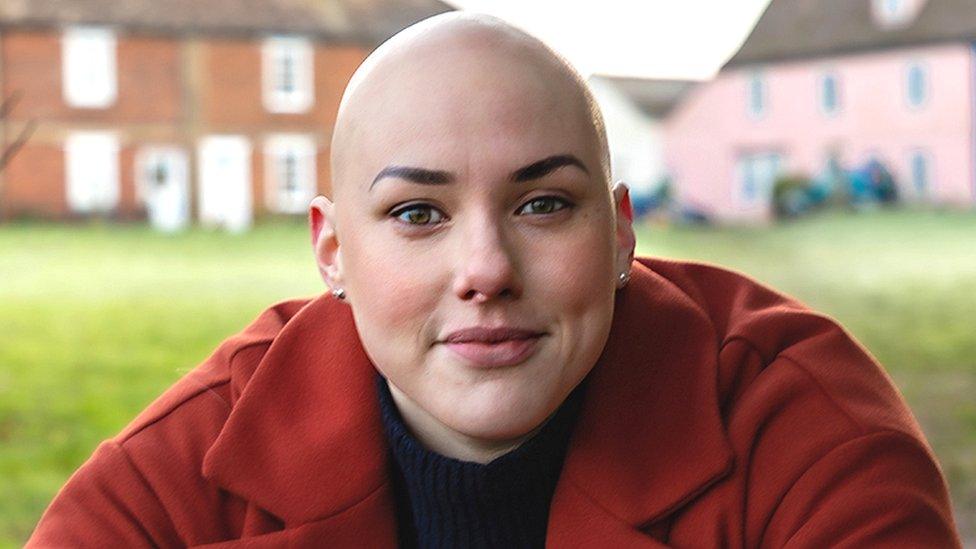Alopecia: 'I decided I'd had enough of hiding my real self'
- Published

Laura says she is slowly getting used to the idea of interacting as a bald woman in everyday life rather than just on social media
Laura Mathias was just 13 years old when she started losing her hair. She automatically blamed herself.
Her doctor diagnosed her with the autoimmune condition alopecia and said it was caused by stress. Laura's parents were going through a divorce and she was finding life difficult.
For the next 17 years she kept her hair loss secret, using a series of wigs that irritated her scalp and often made her head bleed.
During the pandemic, Laura found the confidence to leave home in Manningtree, Essex, without her wig and began posting about her condition on Instagram, external.
Here, in her own words, she describes her hopes for the future now she has learned to embrace living her life as a bald woman.
'I didn't leave the house for six months'
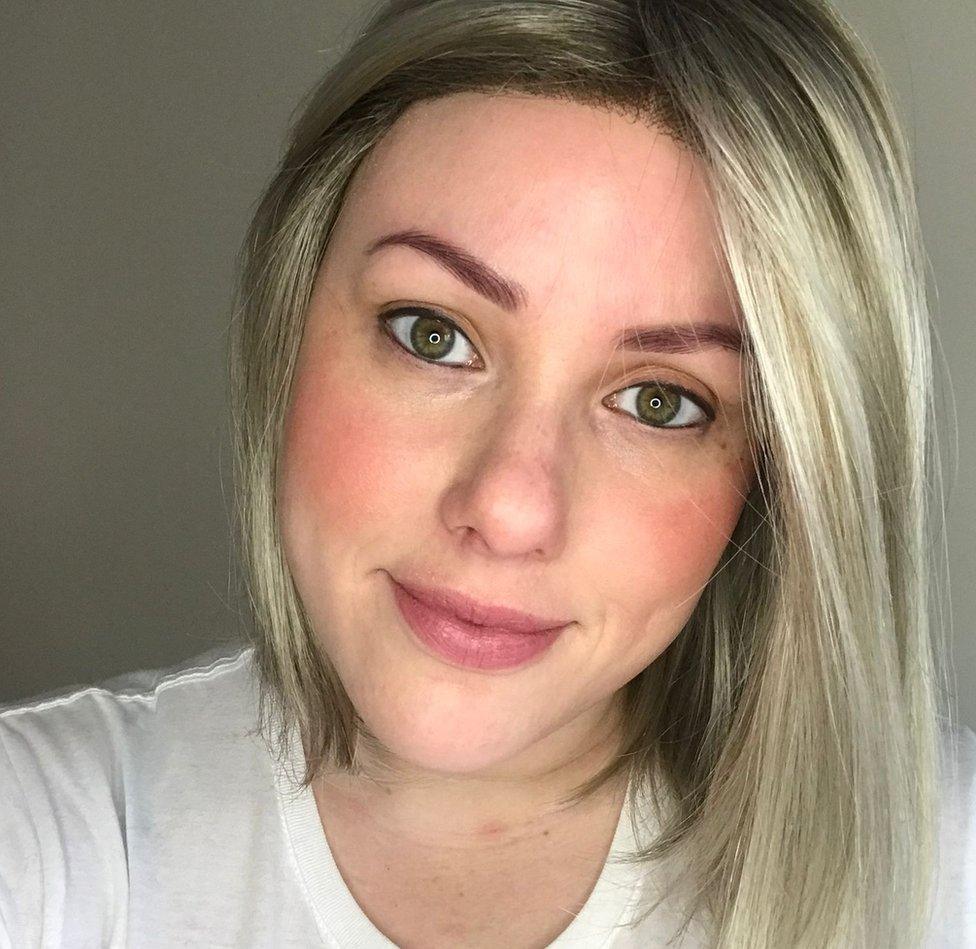
Laura did not go to school for months because she was so anxious about her condition
My hairdresser first found a small bald patch at the back of my scalp when I was 13 and suggested to my mum that we go to a doctor.
The doctor told me it was alopecia and said not to get stressed because it would get worse, and that if I calmed down it might grow back. Straight away I started blaming myself.
He told me there were some online chatrooms I could use, run by the charity Alopecia UK, but I didn't want to accept what was happening to me.
My parents were arguing all the time and it was incredibly stressful. I was waking up to hair all over my pillow and I was so embarrassed that I stopped going to school.
I didn't leave the house for six months and everything stopped. I fixated on my exercise bike because it was the only thing I could control and I lost a lot of weight.
Aged 14, I asked my hairdresser to shave my head and help me find a wig. It was actually too big for me and immediately aggravated my scalp. I also suffer from eczema and the wigs made it so much worse for so many years.
I forced myself back to school and was put in the bottom sets, but I managed to argue that I had potential and I should be allowed back in the higher groups. That was make or break and thank goodness I went back, because I don't know where I would be today otherwise.
'I decided I'd had enough of hiding'
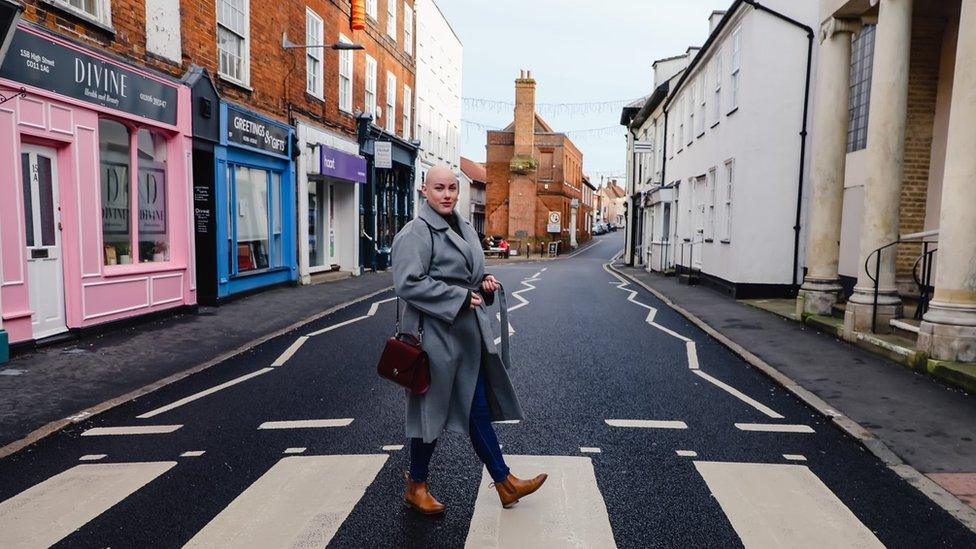
Laura felt she had two identities - 'wig Laura' in public and 'bald Laura' at home
I would spend all of my money on expensive wigs to make sure my secret wasn't exposed. I didn't go on holiday or anything because it cost me £3,000 for a wig that would last for two years.
When I left the house it was 'wig Laura'. When I was at home, curtains shut, 'bald Laura'. That is how extreme it was. I didn't see any other option.
I started following the hashtag 'alopecia' on Instagram and suddenly it was like the curtains were drawn back and I thought, 'Oh my god, there are other people like me out there'.
During the pandemic, I decided I'd had enough of hiding my hair loss. How many years would I have carried on wearing a wig to the point where my head would bleed, if my routine hadn't been disrupted?
In summer 2020, I took part in a photo shoot without my wig to test the water. I started to share my story on social media to build my confidence.
I felt if I was chronicling it online and people were following me, I had to take my wig off. It was only very recently that I started going out without my wig on a casual basis, and I'm still learning to feel completely comfortable with that.
'I have met so many great people with alopecia'
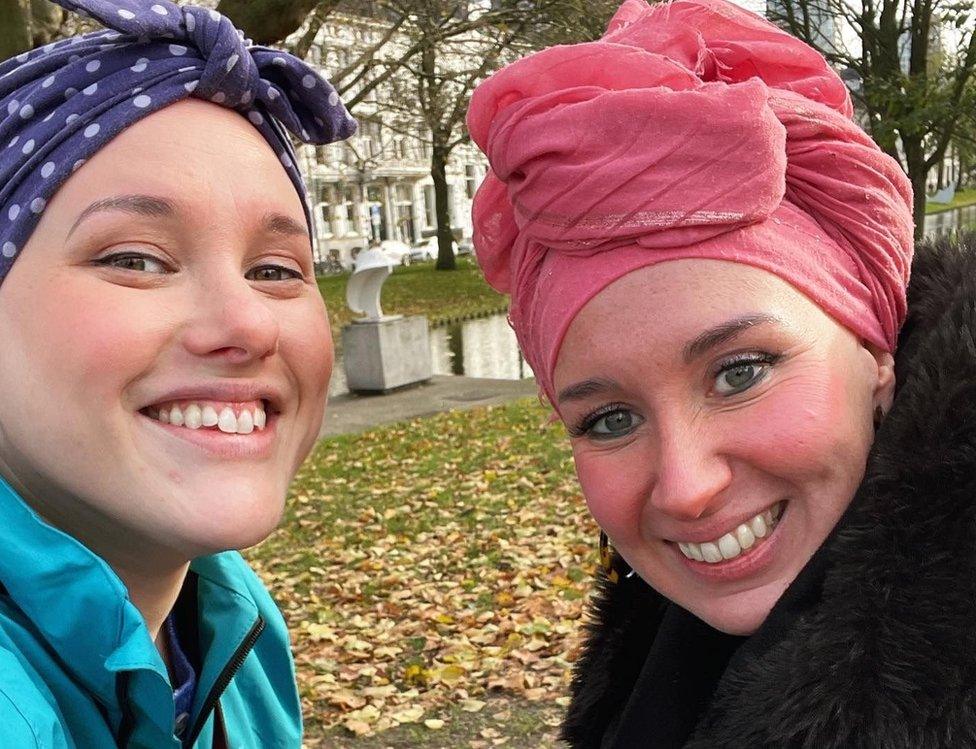
Laura with her Dutch friend Wendy, who also has alopecia, in Rotterdam
I've made so many great friends through sharing my story. I've met lots of other young women going through hair loss and it has normalised being bald for me.
I recently met a friend I made online in Rotterdam who lost her hair in her 30s. It has taken me nearly 20 years to accept this, so I'm amazed by people who have gone through this so recently who are at peace with it.
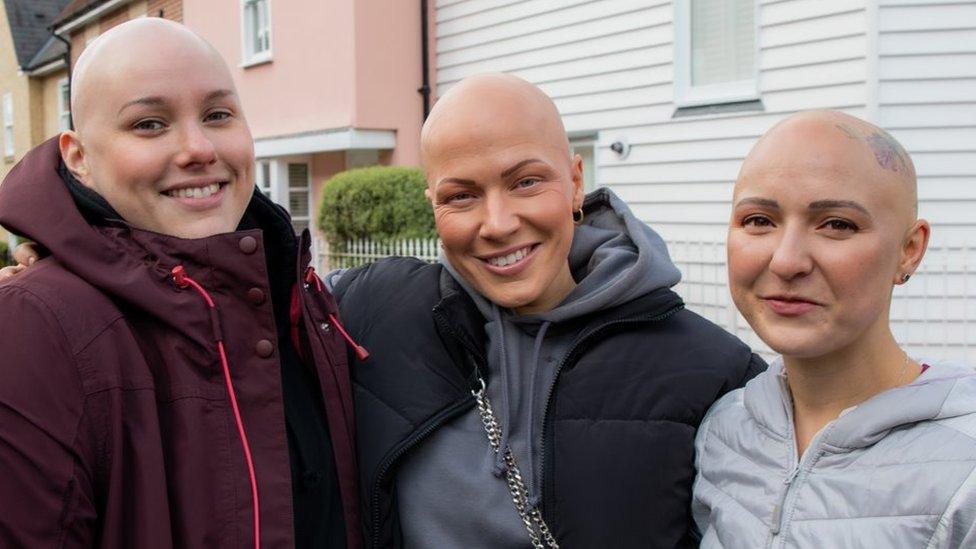
Laura has made friends with other young women with alopecia who she met on social media
Until I met these people, the only images I was exposed to of bald women were models who were thin with a trendy shaved head. I needed to see real women of all sizes to accept myself.
There is still such a long way to go. I would love to see patchy hair loss in a magazine and I'd love to see more people with alopecia in the media in general, not just talking about their hair loss.
'Work was the only place where it was still a big secret'
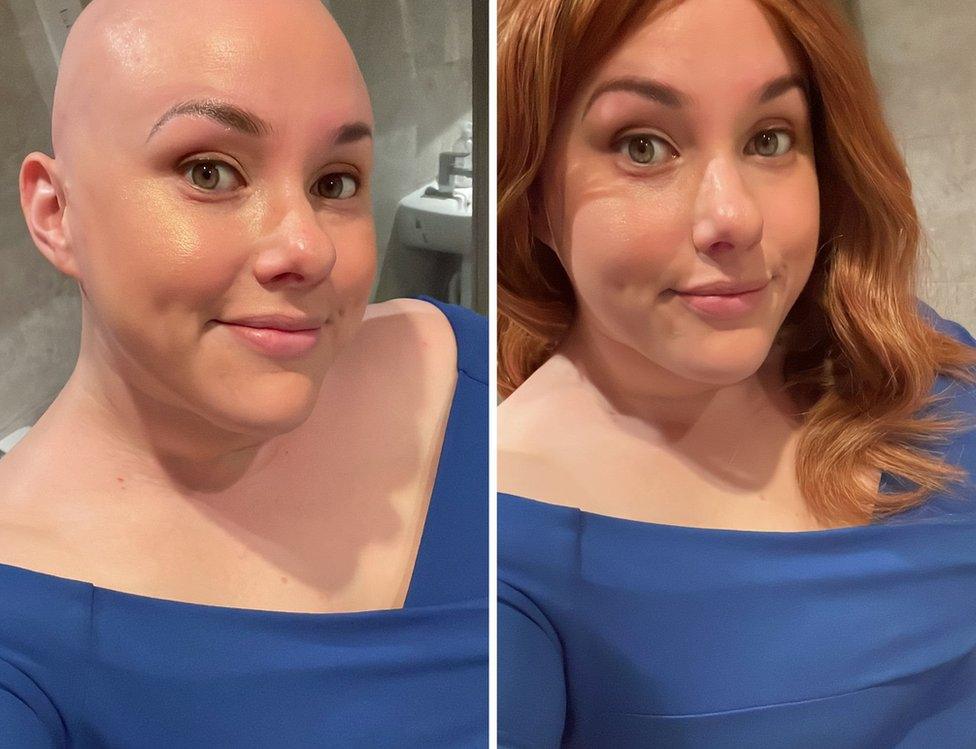
Laura still finds it difficult to go to work as a bald woman
There was only one place where I was still keeping my hair loss a secret - the workplace.
I've always kept it hidden in all of the jobs I've had, but I recently got a new job for Save The Children and I decided to change that.
I did my interview on Zoom without a wig on. I haven't gone to the office bald yet, but I have worn my bandana which feels like a massive step.
It's always stressful starting a new job and I had an eczema flare up and lost my eyelashes. I felt sore and self conscious, so I felt I needed my bandana and I'm OK with that.
I started posting on LinkedIn after the Oscars incident, where Will Smith hit Chris Rock for making a joke about his wife's alopecia. I wanted to give my point of view. The awareness of alopecia after the Oscars was massive, even though it wasn't the most positive of incidents.
LinkedIn recently asked me to take part in the first UK creator accelerator programme, external and I've really enjoyed working with them. I want to celebrate people with a visible difference who can act as mentors at work, and I hope my ideas can be used to improve the workplace for everyone.
'I recently got diagnosed with attention deficit disorder'
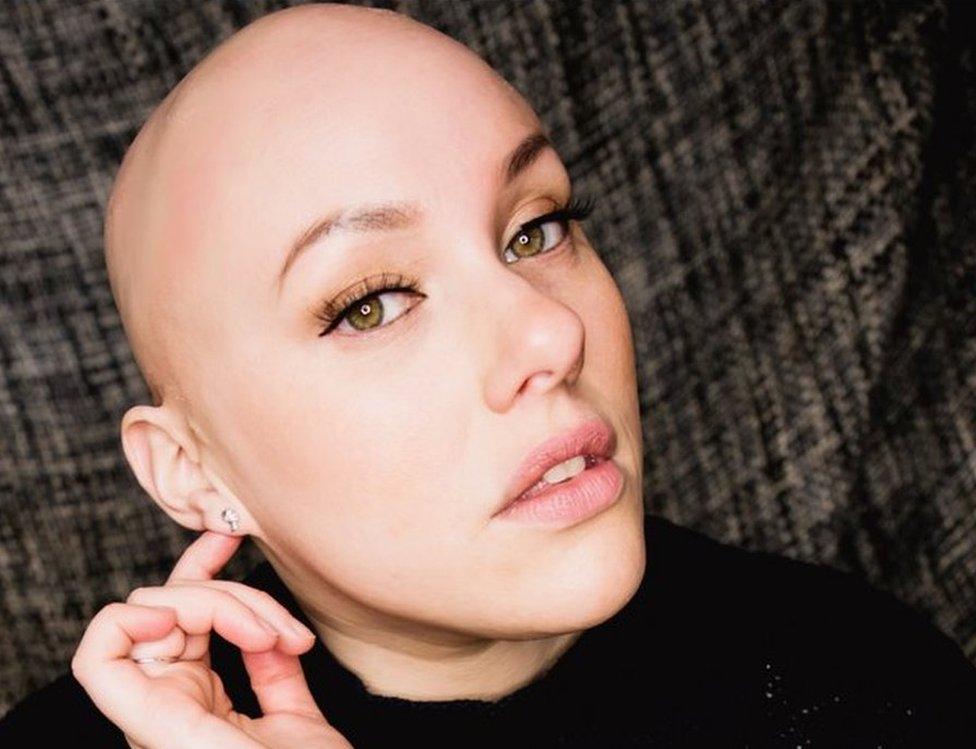
Laura recently got diagnosed with attention deficit disorder and says it has helped make sense of many aspects of her life
Alongside dealing with alopecia, I was recently diagnosed with attention deficit disorder (ADD) and it's really helping me make sense of so many different aspects of my life.
I wanted to understand myself better and I started reading about women being diagnosed later in life. It made so much sense to me.
I don't have a filter and I struggle to focus, which is a common sign and I am a massive over-sharer. I often go off on tangents and I say 'yes' to everything and get burned out.
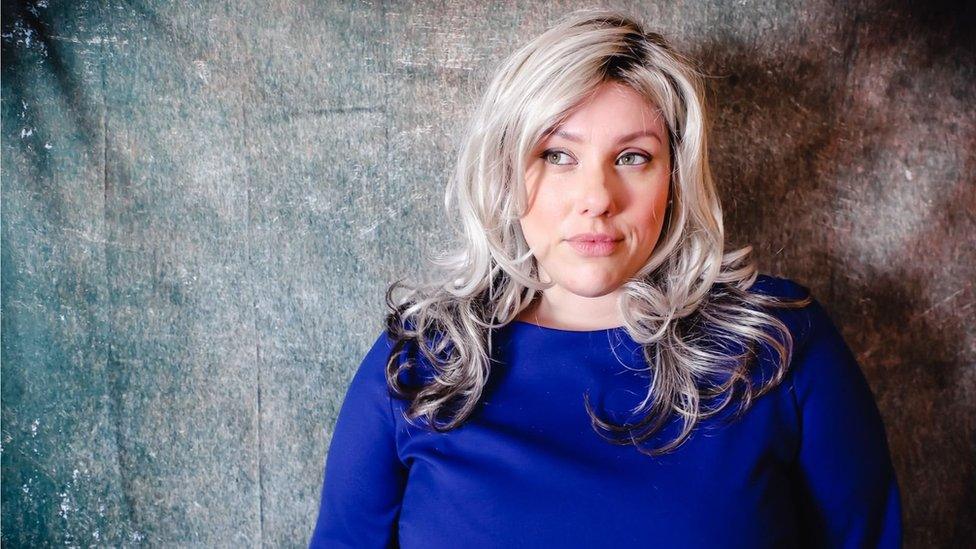
Laura still has days when she feels more comfortable in a wig
I studied film and literature at the University of Warwick and it was a struggle because I pushed myself so hard at the expense of my health and managed to get a first.
It is exhausting trying to mask it. Standard adult tasks like keeping on top of the washing up and sorting your house out can be difficult. I also believe I have rejection sensitivity dysphoria, which is closely related to ADD, so I feel any sort of rejection so keenly.
The fear of being rejected changes my behaviour and it has impacted my relationships. I've always been told I'm sensitive and I can be too much. It is nice to feel vindicated, I've been coping with my brain working differently. I'm still working it all out but at least I now have a diagnosis.
'I still notice people staring at me'
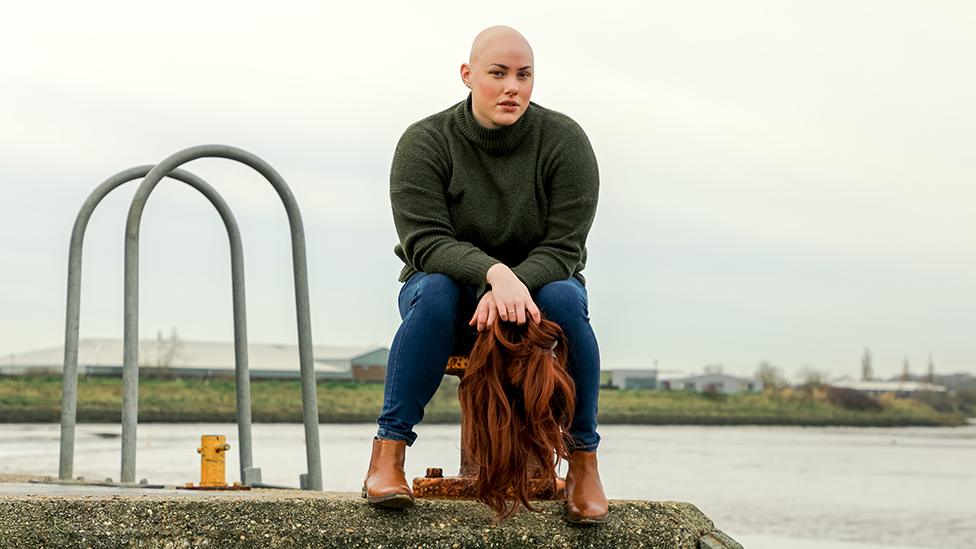
Laura is a campaigner with Changing Faces UK and a volunteer with Alopecia UK
People who are newly going through hair loss, or sometimes parents, often message me on Instagram. I always make it very clear that every person's experience is unique. A lot of people have a short experience of hair loss and it will come back, they might not have Alopecia Areata, external, which I originally had, before it developed into Alopecia Universalis, meaning I have no hair at all.
I always ask people, 'Do you have people around you who you can talk to about this?'. I signpost them to help from the charity Alopecia UK who I volunteer with.
I'm also involved with the charity Changing Faces and took part in their Stop The Stare campaign, external, which raised awareness about the fact staring can be damaging to the wellbeing of those with a disfigurement or visible difference.
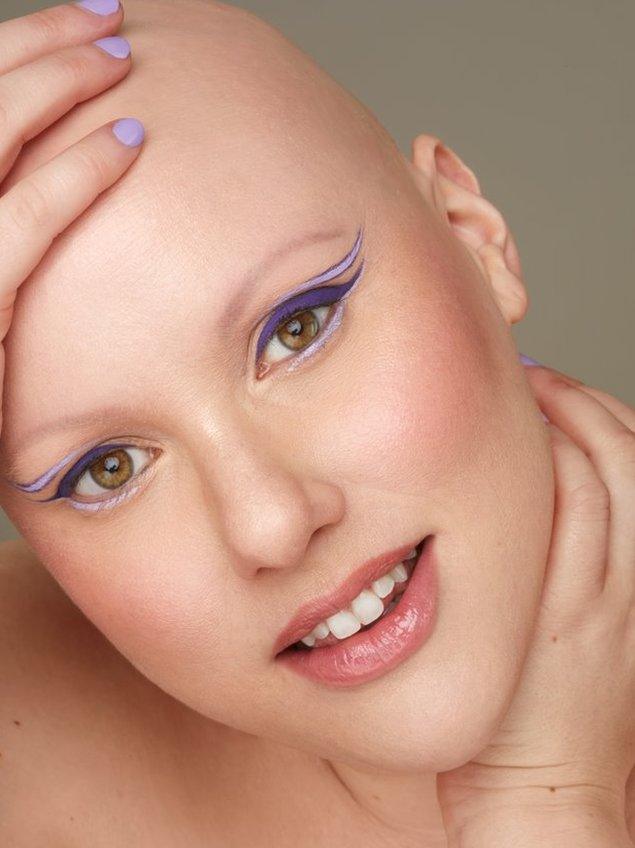
Laura was recently photographed by Amanda Akokhia for an exhibition that celebrates visible differences
I still notice people staring at me when I'm out without a wig. I think they presume I've got an illness like cancer and I'm going through treatment so I get a lot of sympathetic looks, which makes me feel uncomfortable.
I really hope that future generations won't stare and will just accept us. That's one of the reasons I'm doing as much as I can to raise awareness of alopecia.
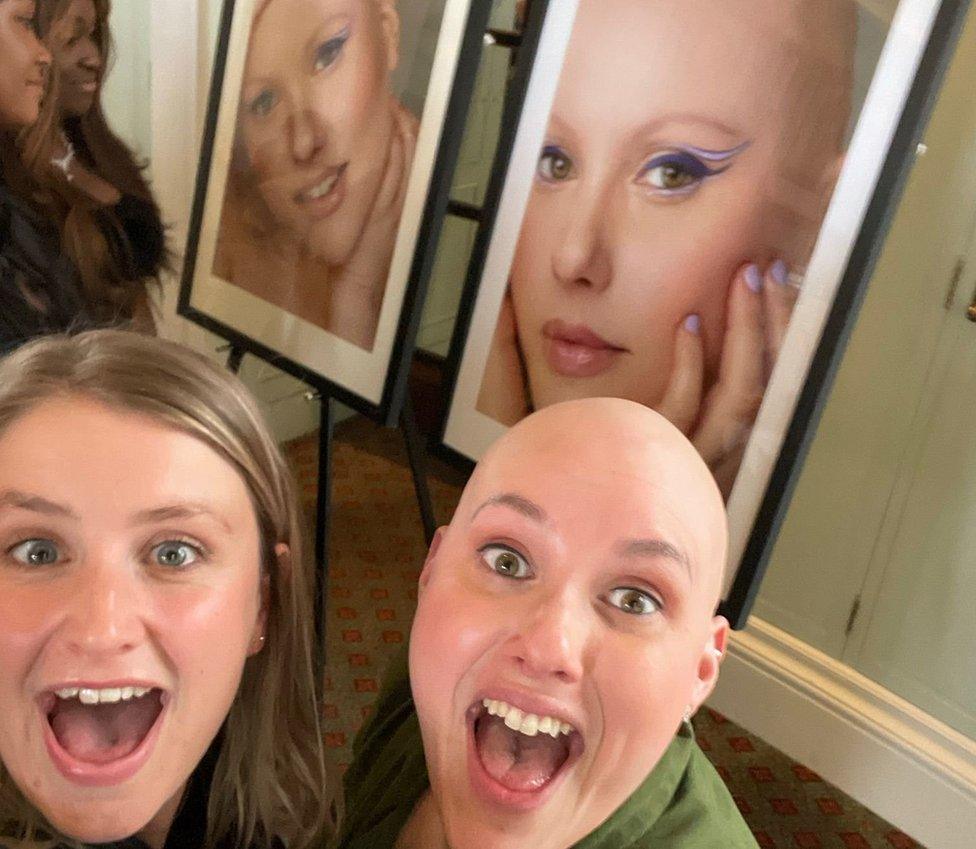
Laura and her friend both felt very emotional at the exhibition
I still have days where I feel like I want to wear a wig and I haven't gone to a wedding yet without one, but I'm going out more and more as a proud bald women and I never thought I would be able to do that. It's just nice to have the choice.
I've spent my whole life not wanting to stand out and for people not to realise I'm wearing a wig. But now, I know it doesn't matter if people notice what's on my head or not.
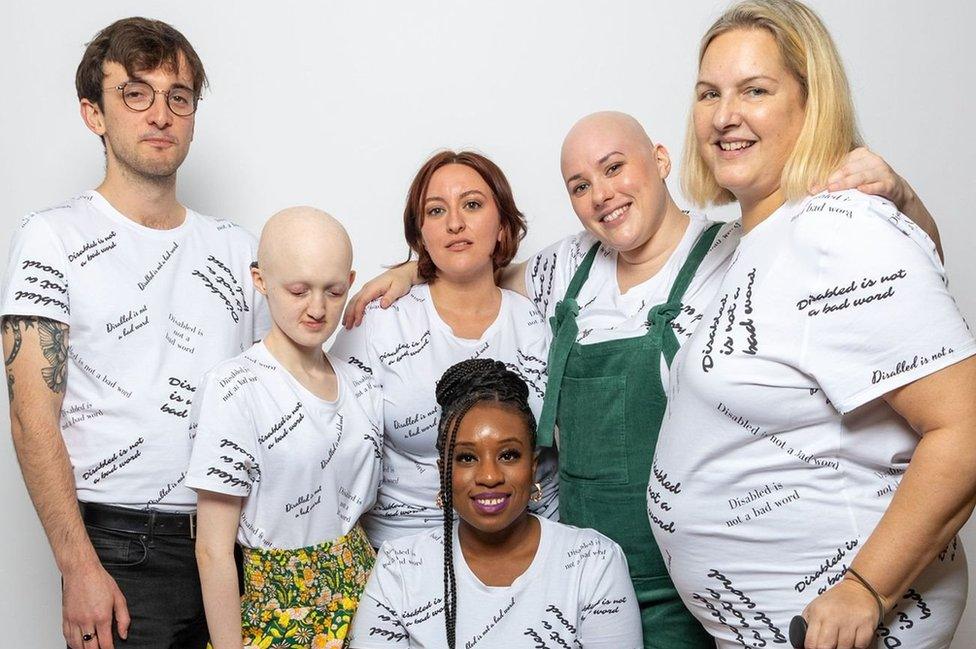
Laura is modelling during London Fashion Week next year for the brand Unhidden, designed by Victoria Jenkins, which adapts designs to make them accessible for everyone
Living with this visible difference is an integral part of who I am, whether I choose to wear wigs or not, but it's not the only part of my identity. So look at me if you like, ask me questions if you want to know more, but do not think my hair (or lack of it!) is the most interesting thing about me.
As told to Charlie Jones.

Find BBC News: East of England on Facebook, external, Instagram, external and Twitter, external. If you have a story suggestion email eastofenglandnews@bbc.co.uk, external
Related topics
- Published30 March 2022
